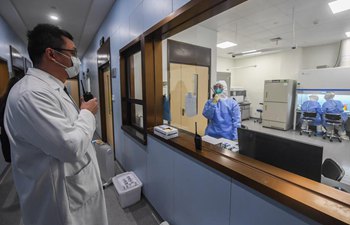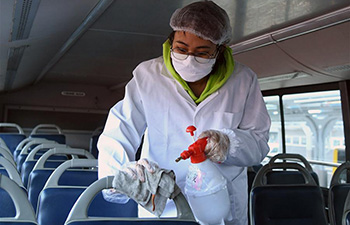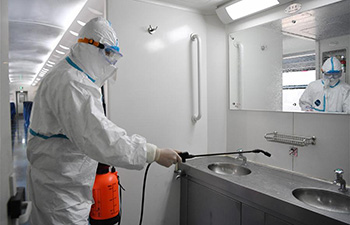UNITED NATIONS, Feb. 4 (Xinhua) -- UN General Assembly (UNGA) president Tijjani Muhammad-Bande on Tuesday urged the international community to avoid further destruction and safeguard oceans for future generations.
In his remarks to 2020 UN Ocean Conference preparatory meeting, Muhammad-Bande stressed that life under water is essential to life on land.
The ocean produces "half of the oxygen we breathe" and provides food for millions of around the world, playing a "fundamental role in mitigating climate change as a major heat and carbon sink," he said.
He added the worldwide ocean economy is valued at around 1.5 trillion U.S. dollars annually, as aquaculture is the fastest growing food sector and 350 million jobs world-wide are linked to fisheries.
"A healthy marine environment holds untold potential for achieving the entirety of the Sustainable Development Agenda," he said. "Yet the unsustainable use, and misuse, of ocean resources, climate change, and pollution all threaten the ability of our ocean to provide for us all."
While coral reefs are home to a quarter of all marine life, half have been lost, adversely impacting global food security, said Muhammad-Bande, adding that illegal, unreported and unregulated fishing further burdens ecosystems.
Moreover, sea level rise induced by climate-change poses an existential threat, with small island developing states at the frontline, he added.
"We must stand with them in solidarity and support. This is for us all," the assembly president stated, further emphasizing improving ocean health as "key to safeguarding our future."
The Ocean Conference, which will run in Lisbon from June 2 to 6, aims to propel science-based innovative solutions in the form of global ocean action.
Also speaking at the preparatory meeting, Peter Thomson, Special Envoy for the Ocean, and himself a former president of the General Assembly, warned that problems associated with acidification, deoxygenation and ocean warming are difficult to fix, all of which are linked to greenhouse gas emissions.
Thomson urged everyone to focus on the "positive tipping points," claiming they "are closer than you think." These include scaling up of science and innovation and other solutions that will be concentrating on in Lisbon, he elaborated.

















